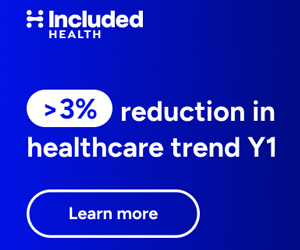 I’m a pundit who like everyone else was surprised by Trump’s victory in the (profoundly undemocratic and hopefully-to-be-abolished-soon) electoral college, and everything I say here is prefaced by the fact that there was very little discussion of healthcare specifics by Trump. So there’s no certainty about what will happen–to state the obvious about his administration!
I’m a pundit who like everyone else was surprised by Trump’s victory in the (profoundly undemocratic and hopefully-to-be-abolished-soon) electoral college, and everything I say here is prefaced by the fact that there was very little discussion of healthcare specifics by Trump. So there’s no certainty about what will happen–to state the obvious about his administration!
What we do know is that Trump said he’d repeal & replace the ACA and the House has voted to repeal it many times (but the Senate has only once & Obama has always vetoed that repeal). A full and formal repeal requires 60 votes in the Senate which it won’t get with the Democrats holding 48. Note that the Democrats needed 60 votes to to forestall a Republican filibuster in order to pass the ACA in 2010. That 60 vote total is a very rare state of events which existed for only only one year–from Jan 2009 until Scott Brown won Ted Kennedy’s old seat in Jan 2010 and one we likely won’t see again for many years.
But this doesn’t does not mean things will continue as usual for two reasons. Congress can change the budget with the Republican 52 seat Senate majority, and the Administration can change regulations and stop enforcing them. So we have to assume that the new Administration and its allies(?) on the Hill will roll back the expansion of Medicaid which was responsible for most of the reduction in the uninsured (even if it didn’t happen in every state). They’ll also reduce or eliminate the subsidies which enable about 10m people to buy insurance using the exchanges. Both of those were in the repeal bill Obama vetoed, although in the bill the process was delayed for 2 years.
This of course may not happen or may be replaced by something equivalent because many of the people who voted for Trump (the rural, white, lower-income voters) fall into the category of those helped by the law, and in a few of his remarks he’s also said that he’ll be taking care of them. Even this week Senator Wicker (R-Mississippi) said that they weren’t going to take away 20 million people’s insurance. In Kentucky which went from a Democratic to Republican governor 2 years ago, the new administration ended their local exchange (from 2017), but in fact not much consequential happened as people were sent to the Federal exchange. If there are changes to the exchanges and the individual mandate or they’re both abolished, there’ll be lots of commotion but it won’t be completely system changing.
My day job at Health 2.0 involves running a conference and innovation program based on a community of companies using SMAC technologies to change health care services and delivery–either by starting new types of health care services or selling those technologies to the current incumbents. So I’m acutely interested in what happens next, albeit somewhat biased about my preferences!
Overall I think that (unlike many other areas of American life) health care technology won’t be that greatly affected. Continue reading…














